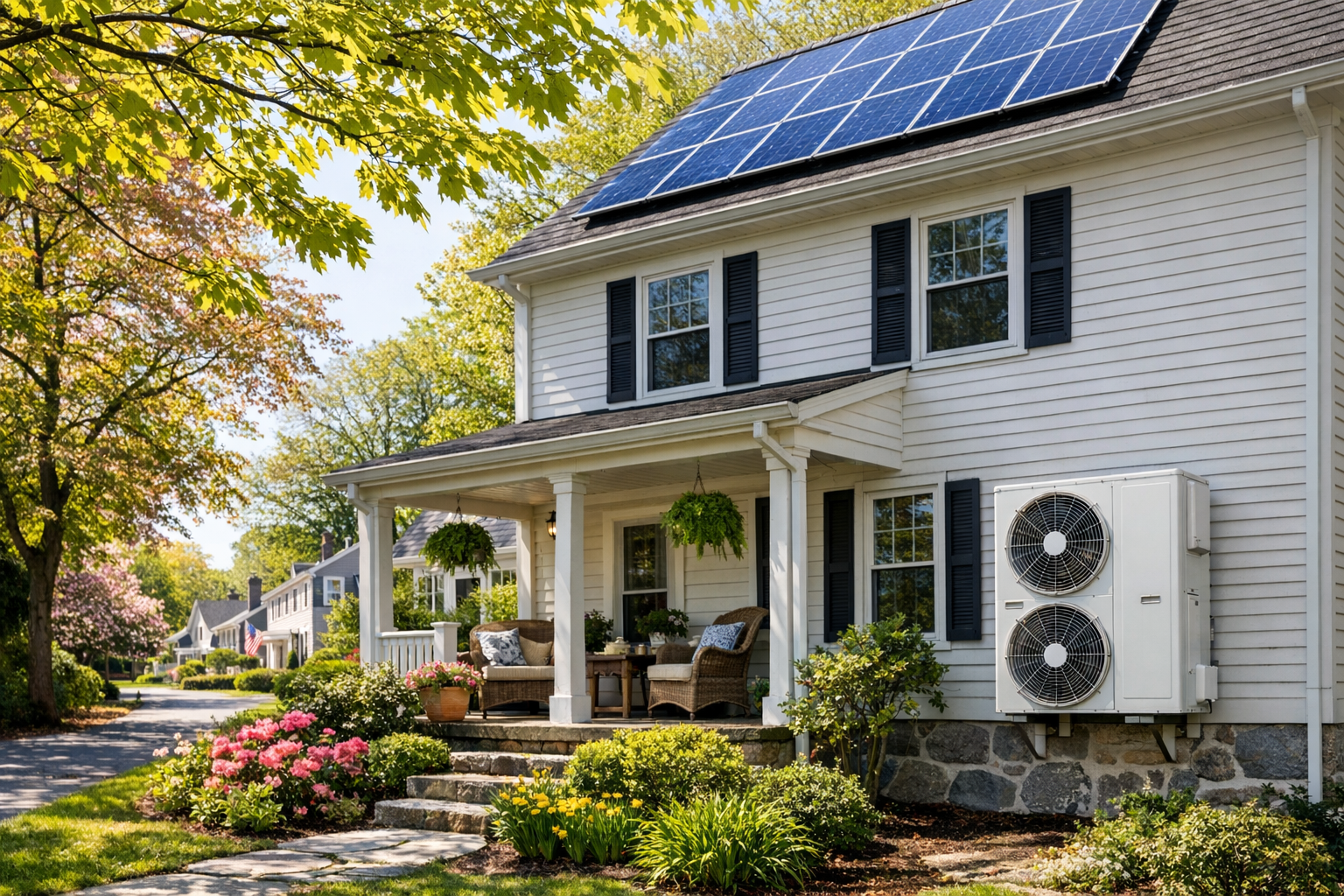Get the Best Heat Pump Quotes in MA
If you’ve been thinking about upgrading your home heating and cooling system, you may have noticed ...
READ
Climate change is no longer a distant threat — it’s already reshaping the housing market across the United States. A new report by the First Street Foundation estimates that climate change could reduce U.S. property values by nearly $1.5 trillion over the next 30 years. As climate risks like flooding, hurricanes, and wildfires become more common, both homebuyers and sellers are adjusting their priorities. In Massachusetts, where coastal communities and older housing stock are particularly vulnerable, understanding how climate change impacts the housing market is essential for anyone looking to buy, sell, or invest in property.
Climate change could reduce U.S. property values by $1.5 trillion over the next 30 years.
Rising home insurance costs are a major factor in the shifting housing market.
Homes in high-risk areas may see limited appreciation or declining values.
Climate risks impact regions unevenly — amenities in high-risk areas can still drive demand.
Retrofitting homes for climate resilience can help mitigate insurance costs and property value losses.
Proactive development in safer areas could provide more housing options in the future.
According to the First Street Foundation, climate change isn't just damaging properties — it's altering the entire trajectory of the housing market. While U.S. home values are expected to keep rising overall, climate risks will slow down that growth, especially in vulnerable areas. This "lost appreciation" represents a hidden cost for homeowners, particularly those in flood-prone or wildfire-prone regions.
In Massachusetts, coastal towns like Newburyport, Gloucester, and much of Essex County could feel the effects sooner than inland communities. As rising sea levels increase flood risks, buyers may hesitate to invest in properties without proper flood mitigation measures.

One of the biggest drivers of this trend is rising home insurance premiums. As climate risks intensify, insurers are adjusting their rates — or in some cases, pulling out of high-risk markets entirely. Homebuyers are taking these costs into account when deciding where to purchase, which could lower demand in areas with high flood or wildfire risks.
In Massachusetts, flood insurance premiums through FEMA’s National Flood Insurance Program have already seen significant increases in recent years. For coastal homeowners, the additional cost of insurance could make once-desirable properties less affordable.
Interestingly, not all high-risk areas will see declining property values. Markets like Los Angeles, Miami, and Houston — which face strong climate hazards — are still projected to grow. That's because these regions offer amenities like warm weather, job opportunities, and cultural attractions that continue to draw buyers.
Massachusetts' Greater Boston area may follow a similar pattern. Despite its vulnerability to flooding and heatwaves, the region’s economic strength and desirable lifestyle options could keep property values resilient in the short term — especially in cities like Cambridge and Somerville.
Investing in climate resilience can help protect property values and lower insurance premiums. Retrofitting homes with hurricane-resistant windows, elevated foundations, or fire-resistant materials may cost a few thousand dollars upfront but can lead to long-term savings.
Programs like Mass Save offer incentives for energy-efficient home improvements, while green-certified real estate professionals like Alex Navarro can help guide buyers toward properties that are both sustainable and resilient.
One long-term solution is to encourage development in safer, lower-risk areas. Massachusetts has already taken steps in this direction by expanding zoning laws to promote smart growth and climate-resilient infrastructure. By planning ahead, cities and towns can create more housing options without putting residents at greater risk.
Climate change is reshaping the U.S. housing market — and Massachusetts is no exception. Whether you're buying, selling, or simply maintaining your home, understanding how climate risks impact property values is crucial. By investing in climate resilience and supporting proactive development, homeowners can protect their investments while helping to build a more sustainable future.
Sign up for our newsletter, stay updated on the local real estate market and learn something new about home ownership, MA real estate regulations and healthier, more efficient homes.

If you’ve been thinking about upgrading your home heating and cooling system, you may have noticed ...
READ
If you have toured a home with me, you already know I will absolutely stop mid showing to point out ...
READ
As a Massachusetts resident and a real estate agent, I see the housing affordability crisis from ...
READ